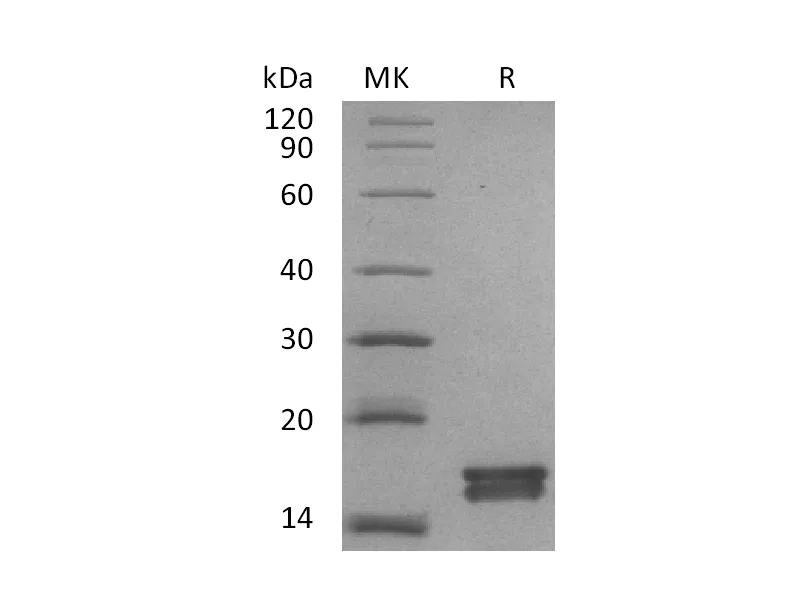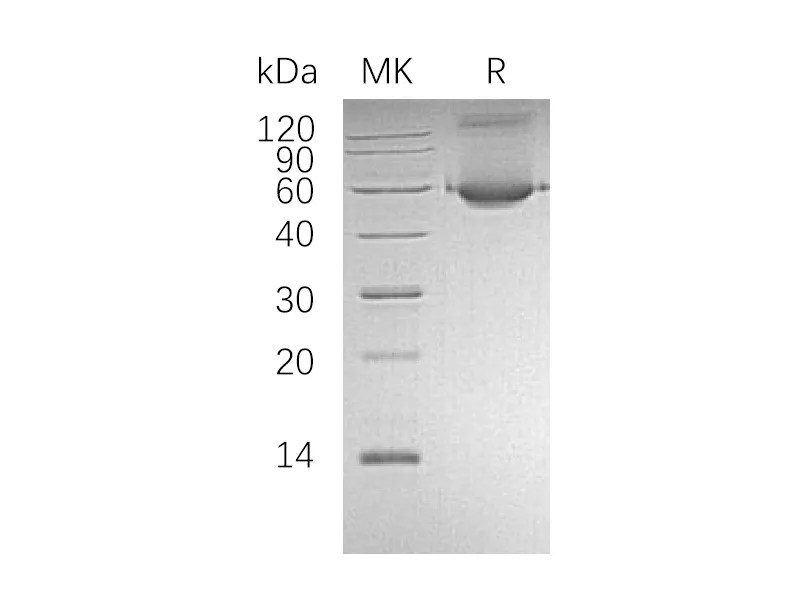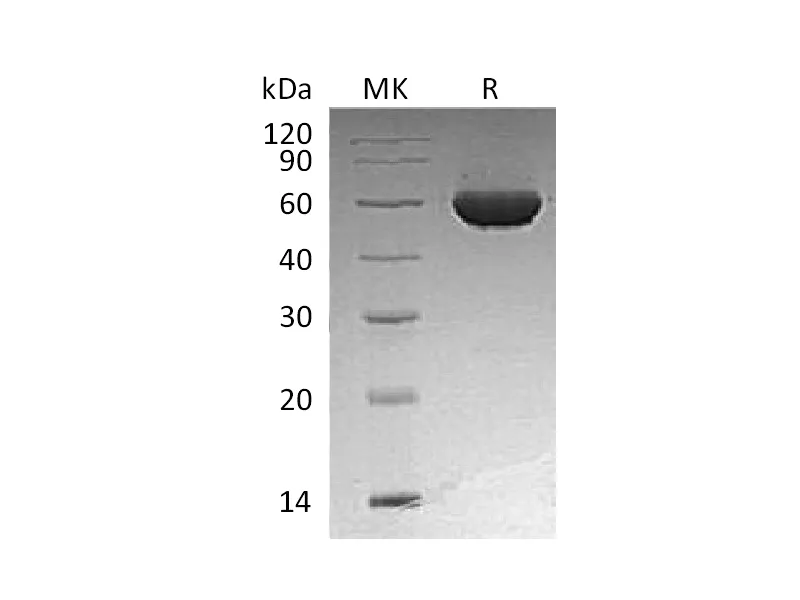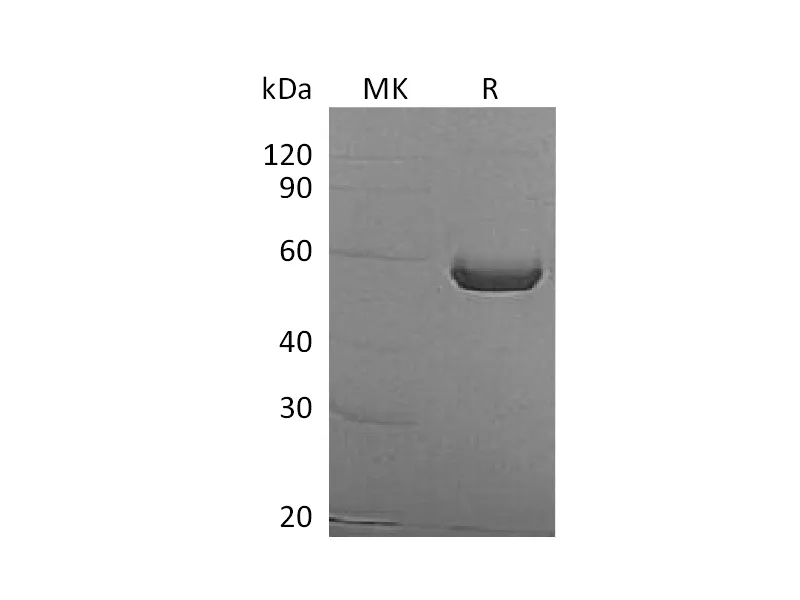Alternative Names
Serine Protease Inhibitor Kazal-Type 4; Peptide PEC-60 Homolog; SPINK4
Background
Serine Protease Inhibitor Kazal-Type 4 (SPINK4) is a secreted protein containing one Kazal-like domain. SPINK4 is a member of the SPINK protein family. The gene family of serine protease inhibitors of the Kazal type (SPINK) are functional and positional candidate genes for celiac disease (CD). SPINK1 plays an important role in protecting the pancreas against excessive trypsinogen activation. It is a potent natural inhibitor of pancreatic trypsin activity. SPINK1 mutations are associated with the development of acute and chronic pancreatitis and have been detected in all forms of chronic pancreatitis. SPINK2 functions as a trypsin/acrosin inhibitor and is synthesized mainly in the testis and seminal vesicle where its activity is engaged in fertility. The SPINK2 protein contains a typical Kazal domain composed by six cysteine residues forming three disulfide bridges. SPINK9 was identified in human skin. Its expression was strong in palmar epidermis, but not detectable or very low in non palmoplantar skin.
Note
For Research Use Only , Not for Diagnostic Use.




